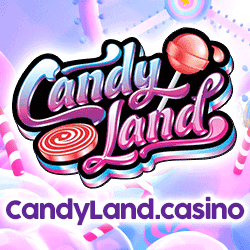Florida Orders Offshore Betting Sites to Cease Illegal Operations
February 5, 2025 Marija D

The Florida Gaming Control Commission (FGCC) has taken action against unauthorized online gambling platforms that cater to residents and visitors in the state. On Monday, the agency issued cease-and-desist letters to three offshore operators—BetUS (Milvus Ltc), Bovada (Harp Media B.V.), and MyBookie (Gaming Services Provider, N.V.)—demanding an end to their unlawful gambling services.
Florida Targets Unlicensed Betting Sites
According to the FGCC, the gambling platforms in question provide unauthorized betting options, violating state law. The commission’s letter explicitly outlines the nature of these illegal offerings, which include sports betting, horse racing wagers, point spreads, moneylines, proposition bets, and futures. The commission warned that under Florida law, facilitating or accepting these wagers constitutes a felony.
The cease-and-desist letter states
“The gambling websites offered by your overseas bookmaking and casino operation offer or accept wagering on sports and horse races, including betting on point spreads, moneylines, and totals, as well as proposition bets and futures in the sportsbook and adding money to bet slips in the racebook. Under Florida law, this conduct is a felony offense. See § 849.14, Fla. Stat. Further, it is a felony offense to receive illegal wagers on the result of any trial or contest of skill, speed or power or endurance of human or beast, or to aid, assist, or abet such illegal wagering.”
Strict Regulations on Gaming in Florida
FGCC Executive Director Ross Marshman reinforced the state’s firm stance on gambling laws, stating that both land-based and online gaming are heavily regulated in Florida.
“Gaming, both land-based and online, is strictly regulated in Florida,” Marshman emphasized in a statement. “For example, when it comes to slot machine gaming, counting the eight legal, state-licensed slot machine businesses, and the six tribal gaming locations currently operated by the Seminole Tribe of Florida, there are only 14 legal slot machine businesses in Florida. The only online sportsbook operating lawfully in Florida is the Seminole Tribe of Florida’s Hard Rock Bet. Anyone in Florida betting on the Big Game needs to know this. Bettor beware.”
The FGCC highlighted that illegal gambling platforms do not contribute to Florida’s economy. Revenue from state-approved gaming establishments, including slot machine taxes and revenue-sharing agreements with the Seminole Tribe, s essential programs. In 2024 alone, state-licensed slot operators contributed more than $240 million to the Educational Enhancement Trust Fund, while Florida expects to receive at least $2.5 billion from the Seminole Tribe over the next five years.
Nationwide Crackdown on Offshore Operators
Florida is not the only state taking steps against unauthorized gambling platforms. While this is the first time BetUS has received such a notice, Bovada and MyBookie have faced similar legal actions in other states.
Michigan’s Gaming Control Board (MGCB) recently issued a cease-and-desist order against MyBookie.ag for violating state laws by offering its services to Michigan residents. MGCB Executive Director Henry Williams affirmed the board’s commitment to protecting consumers and maintaining regulatory compliance.
“Our investigation into MyBookie.ag found that their operations were accessible to Michigan citizens, which violates state laws,” Williams stated. “We are taking strong action to uphold the principles of fair and legal gaming.”
Bovada has also withdrawn from multiple states in response to regulatory actions. To date, the operator has exited 17 states and Washington, D.C., including West Virginia. Most recently, Bovada ceased operations in New Hampshire after a cease-and-desist order from the state’s lottery commission.
With Florida ing the list of states cracking down on unauthorized gaming platforms, regulators are sending a clear message that unlicensed operators will not be tolerated.
Source:
Florida Gaming Control Commission (official PR) (pdf)















